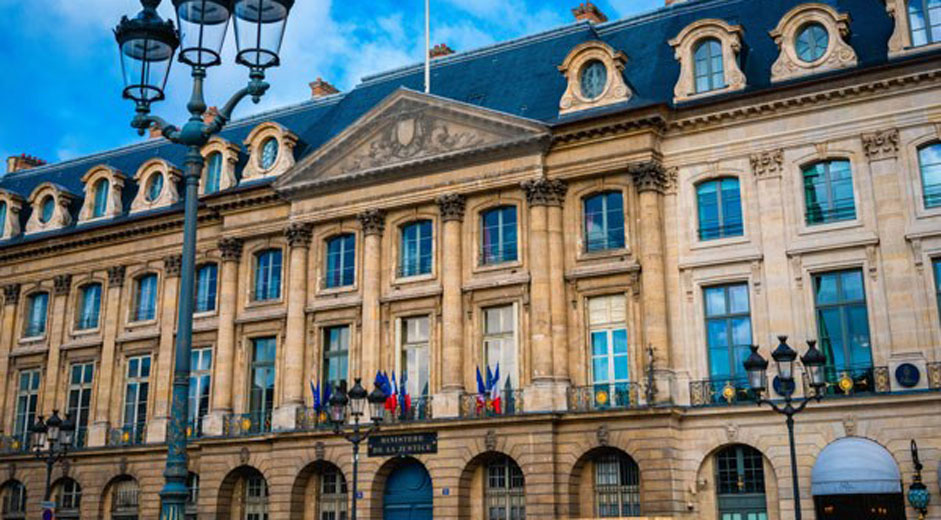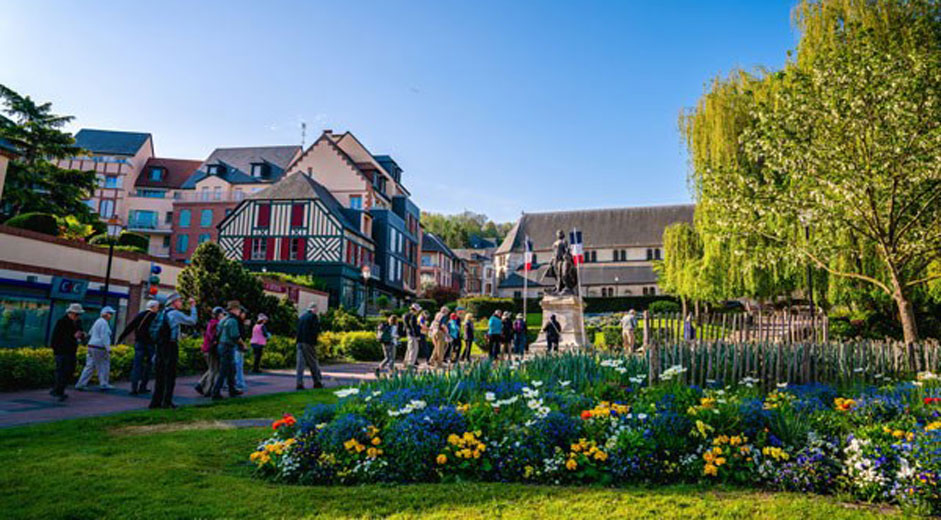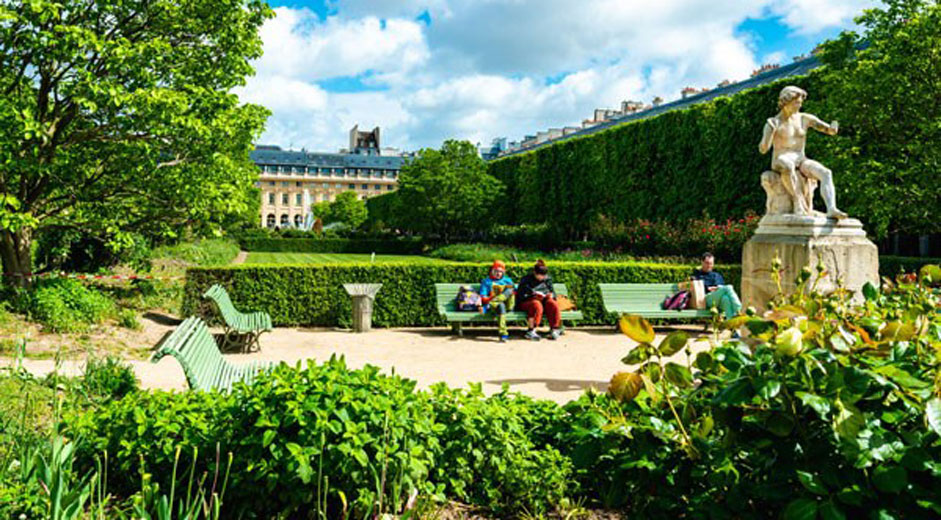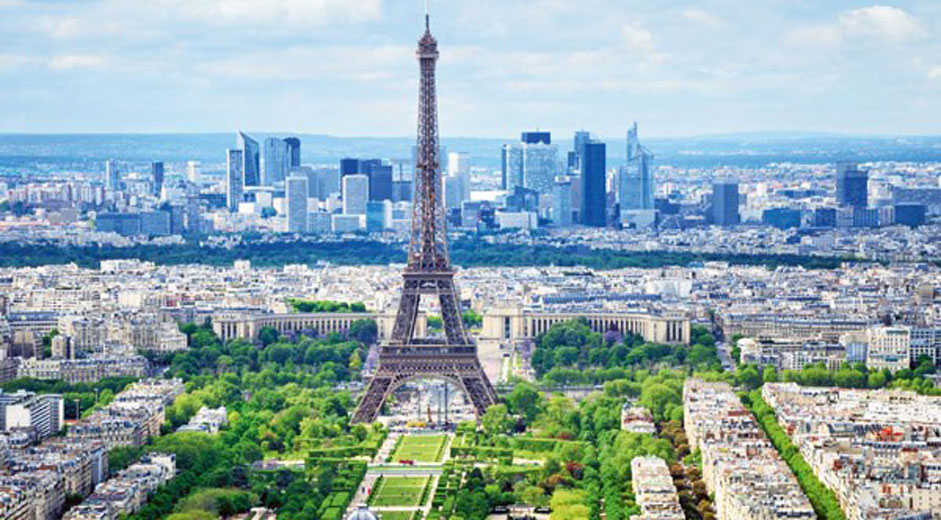Learn About Paris Online With Our Instructor, Nettah Yoeli-Rimmer
Imagine being able to take in the artworks, culture and joie de vivre of Paris without ever leaving your home. Sound good? Through the wonders of technology, the Internet and some of our favorite instructors, Road Scholar is bringing world-class learning adventures to you. We asked instructor Nettah Yoeli-Rimmer to share his perspective on leading our very first Adventures Online program in Paris to give you a first-hand look at what goes on in one of our most exciting new virtual learning adventures!

Q: Nettah, you led Road Scholar’s very first multi-day online learning adventure, Adventures Online: The Art & History of Paris. What was it like planning and leading a program of this caliber?
A: It was quite a daunting task at first. I’ve done quite a bit of lecturing and teaching online since the start of the coronavirus crisis, but this was a new type of adventure for everyone involved. It was important for me that this would be more than a lecture series and I really wanted to recreate the atmosphere of a Road Scholar learning adventure, to bring Paris to life, so that participants would feel the sense of excitement and discovery that travel provides. At the same time, I designed the program to take advantage of the benefits of online learning. Freed from the constraints of geography, we can jump across the city, and learn about its historical development in greater detail, while zooming in on key works of art and architecture.
Q: How does the online Paris program work? What is a typical day like?
A: The program is organized thematically, with each day focusing on a specific period of Parisian history and its corresponding artistic style. For example, on Day 1, we look at medieval Paris and the development of Gothic architecture. A typical day involves an in-depth lecture on the subject at hand, followed by a number of field trips, where we explore specific locations, buildings or museums in greater detail. Each day ends with an interactive discussion session. Participants ask me questions, of course, but there is also a wider group discussion about issues and questions that arose during the day.

Q: Were all participants familiar with the technology needed to attend this program? How did you address any challenges that participants faced?
A: Many of the participants had previously used the technology for work or to catch up with friends and family in this difficult time. Even if they hadn’t, however, it’s all very straightforward. I go over the basics at the start of the program and I’m always there to remind participants if they forget to unmute or struggle to turn on their camera. Luckily, Road Scholar also provides constant technical support and a producer is always there in the background should there be any major technical problems. I found that participants were true Road Scholars: flexible and willing to embrace the new technology.
Q: Road Scholar programs always begin with an orientation so that participants can introduce themselves and get to know one another. What was orientation like for this program?
A: I’m used to meeting people in the hotel and having a chance to shake their hands and lead a lively orientation. Naturally, things are a little different online and we all have to use our imagination a little more. However, there are less points to cover than on a regular exploration of Paris, so that just leaves more time for everyone to introduce themselves and begin getting to know each other.

Q: What is a “field trip” like on this online Paris program? How do participants experience the locations that you are educating them about?
A: The “field trip” is the unique aspect of this program, which transforms it from a lecture series into an online exploration. Participants visit the different locations with me through the use of short videos, which I filmed in Paris in July. The videos recreate the feeling of an on-site exploration, while allowing me to explain certain aspects of the city in greater detail, like facades, historical squares or statues. During the “field trips”, we also use maps and images to transmit the atmosphere and feeling of the city and ensure participants have a strong sense of place during the visit. Finally, high-resolution digital images of the city’s most famous art collections allow us to get a closer look at the city’s art than is even possible in person!
Q: Were there participants on this program who may not have been able to attend a traditional Road Scholar program due to health or mobility issues? If so, what do you think this opportunity provided for them?
A: There were a few participants on the program who mentioned this. I think it’s great that we can offer them this opportunity. Essentially, the online program brings Paris to them and allows them to experience the same range of content and learning as they would have on a normal program, while discovering the city and its hidden corners from the comfort and safety of their own homes.

Q: From the beginning of this Paris program until the end, did the group dynamic change?
A: Definitely. During the orientation on the first day, it was clear that participants were a little shy, which is absolutely understandable, given how new the experience was and how different it is to interact with new people online. As the days went on, though, it was clear that the group was starting to come together. People were more willing to ask questions and to express their opinions and thoughts, which is fantastic.
Q: Were participants able to bond and get to know one another like they would on a traditional program?
A: I don’t think we can ever hope for online interactions to entirely replace the experience of meeting face to face. Naturally, things are different and there isn’t the same opportunity for participants to have informal conversations in small groups, or go and have a coffee together. Despite this, though, I felt that the participants were able to bond in different ways, by sharing their experiences and their thoughts throughout the program. In many ways, being online together reminded me of bus journeys and walks on a regular Road Scholar program: an opportunity for lively group discussions and debates.

Q: What “delighted” our participants? Were there any moments that stood out?
A: I think the videos provided moments of delight, as they transported the participants directly to Paris and recreated the atmosphere of the city in front of their eyes. Also, I would have to say that the museum field trips are quite special. We have more time and freedom to delve into the stories behind the art and understand the historical and cultural contexts of the important movements.
Q: Did anything surprise you about hosting an online learning adventure?
A: I was surprised at how real it felt for me. Despite sitting in my own house, I felt that I was on a program and really travelling with the participants. I had the same excitement and slight nerves that I do when I’m instructing for a week in Paris. On the last day, when it was time to say goodbye to the participants, I had the same melancholic feeling as when I leave a group at the airport, that we had become a little family for a week. I didn’t expect this to happen on an online program.

A: 2020 has undoubtedly been a very tricky year that we will all be glad to see the back of and for better times to come. I like to think that this online program offered participants a moment of escapism, away from the problems of world and gave them an opportunity to connect with a beautiful city, full of fascinating history and culture. The program provides the chance to socialize with like-minded people, think and talk about travel and be immersed in a different place and culture. I also think that learning about history can help to put present issues into perspective and give us some comfort that things eventually get better.
About the Author
Nettah Yoeli-Rimmer studied French and Spanish literature before going on to get a master’s in European culture at the University of Cambridge. He has traveled extensively and has many years of experience leading educational adventures in France, Spain and Italy. He has recently completed a Ph.D. in 19th-century Spanish literature. In addition to his principal research, he regularly writes for a number of publications on urban history and architecture.
